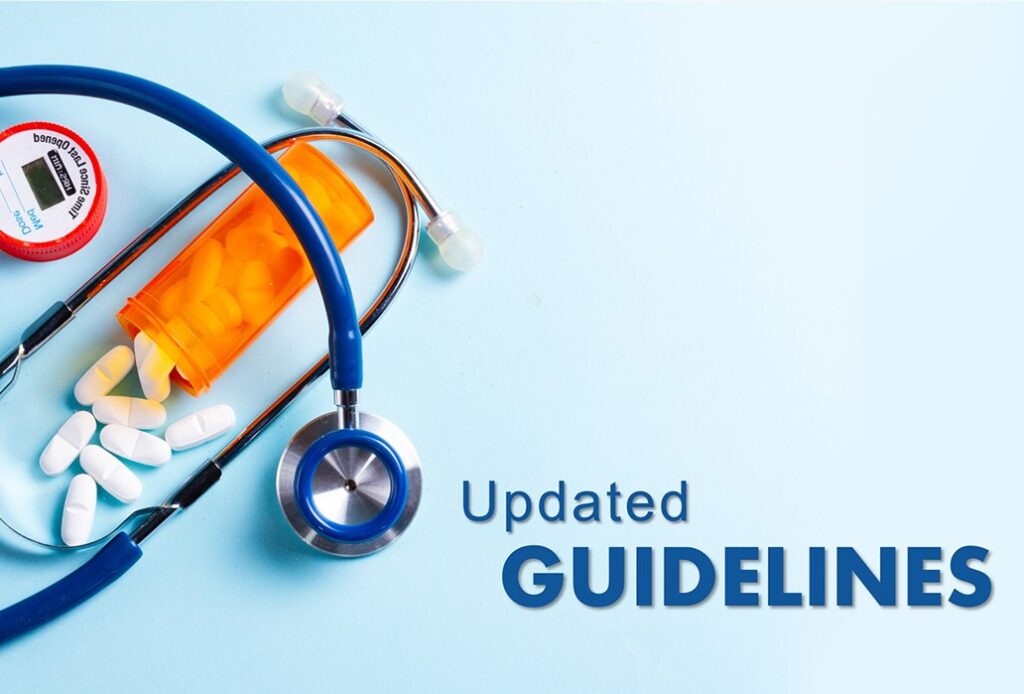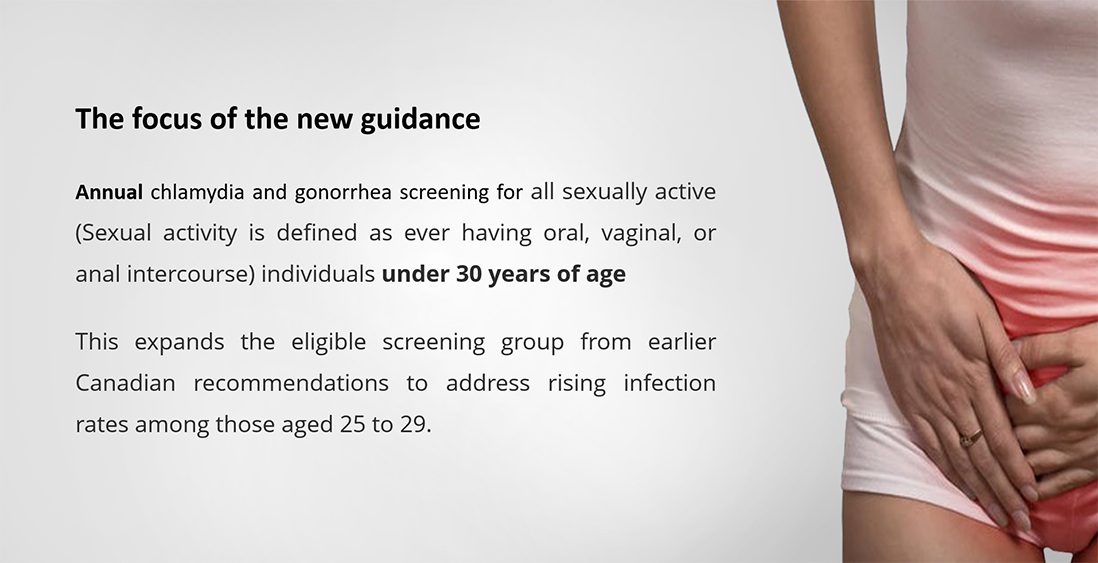New Chlamydia screening Guideline-2021

Medicine is an ever-changing subject; there are always new recommendations or guidelines. That is why, at Ace Qbank, we place a greater emphasis on evidence-based practice as well as the most recent screening, recommendation, and guidelines to keep our subscribers up to date with the most recent changes in medicine by posting an article and developing questions based on recent changes. This article will give the most recent recommendation on screening for Chlamydia and gonorrhea that applies to sexually active persons under the age of 30 who are not particularly seeking care for a suspected STI and are not known to belong to a high-risk category.
The recommendation to test those under 30 is based on practically all of the underlying information coming from studies of people under 30. Furthermore, rates of Chlamydia and gonorrhea are rising among Canadians aged 25-29, with rates and total cases similar to those aged 15-19 years.
According to the current guideline, males will also be tested based on the characteristics of sexual networks (given the involvement of males in the transmission of these illnesses) and the ability to minimize chlamydia and gonorrhea infection and its negative effects in females (who bear the burden of health complications associated with chlamydia and gonorrhea infections).
This guideline additionally emphasizes gonorrhea screening because many gonorrhea infections are asymptomatic; up to 40% of individuals with gonorrhea may have concurrent Chlamydia, and current Canadian clinical and laboratory practice is to combine gonorrhea and chlamydia testing using a single sample.
Why should you consider screening for Chlamydia?
We’ve included both Chlamydia and gonorrhea in this recommendation because they’re tested simultaneously.
- In Canada, the most often reported bacterial sexually transmitted diseases are Chlamydia and gonorrhea. 1 in every 20 sexually active 15-29-year-olds will contract Chlamydia.
- This recommendation significantly decreases pelvic inflammatory disease in females, and screening of males helps prevent negative health consequences in females.
Annual chlamydia and gonorrhea screening for all sexually active (Sexual activity is defined as ever having oral, vaginal, or anal intercourse) individuals under 30 years of age
Who does this recommendation apply to?
- It applies to all sexually active (Sexual activity is defined as ever having oral, vaginal, or anal intercourse) individuals under 30 years of age.
- This expands the eligible screening group from earlier Canadian recommendations to address rising infection rates among those aged 25 to 29.
How often should screening take place?
Individuals at high risk may benefit from an annual screening offer.
At Ace Qbank, we work hard to maintain the content up to date and in accordance with medical standards of care. We evaluate the question bank on a regular basis based on current guidelines and recommendations, and we implement any changes we make as soon as possible to enhance your learning experience.
Read more here!
Try Ace Qbank out today!



